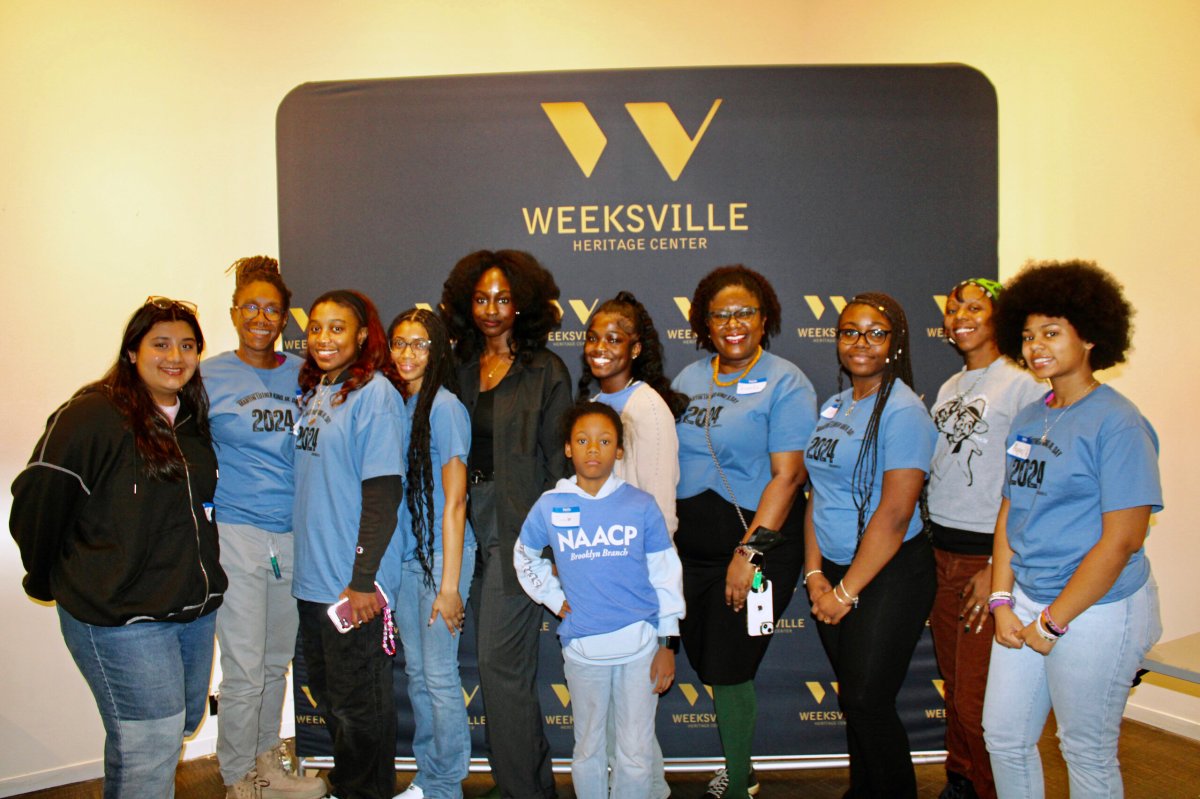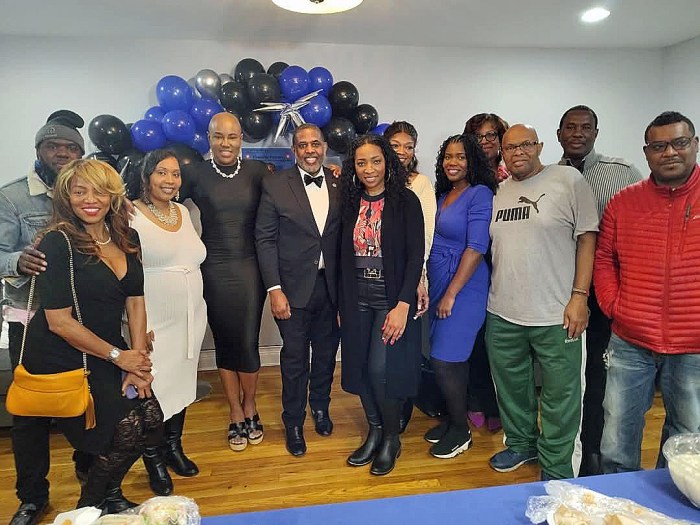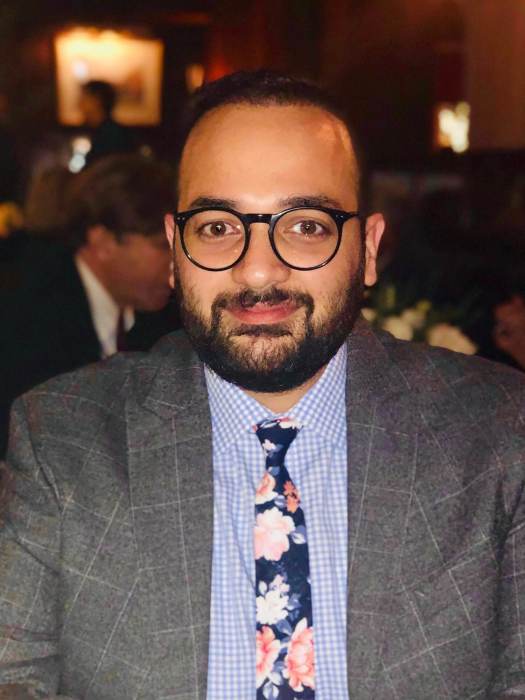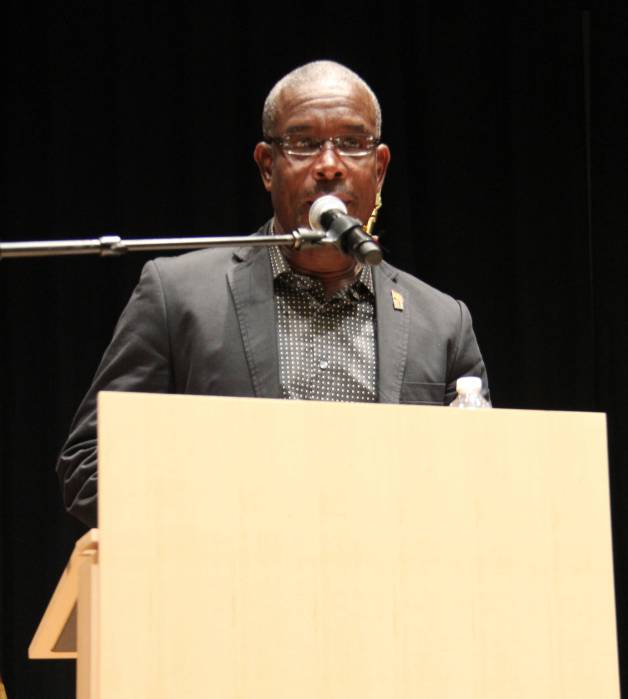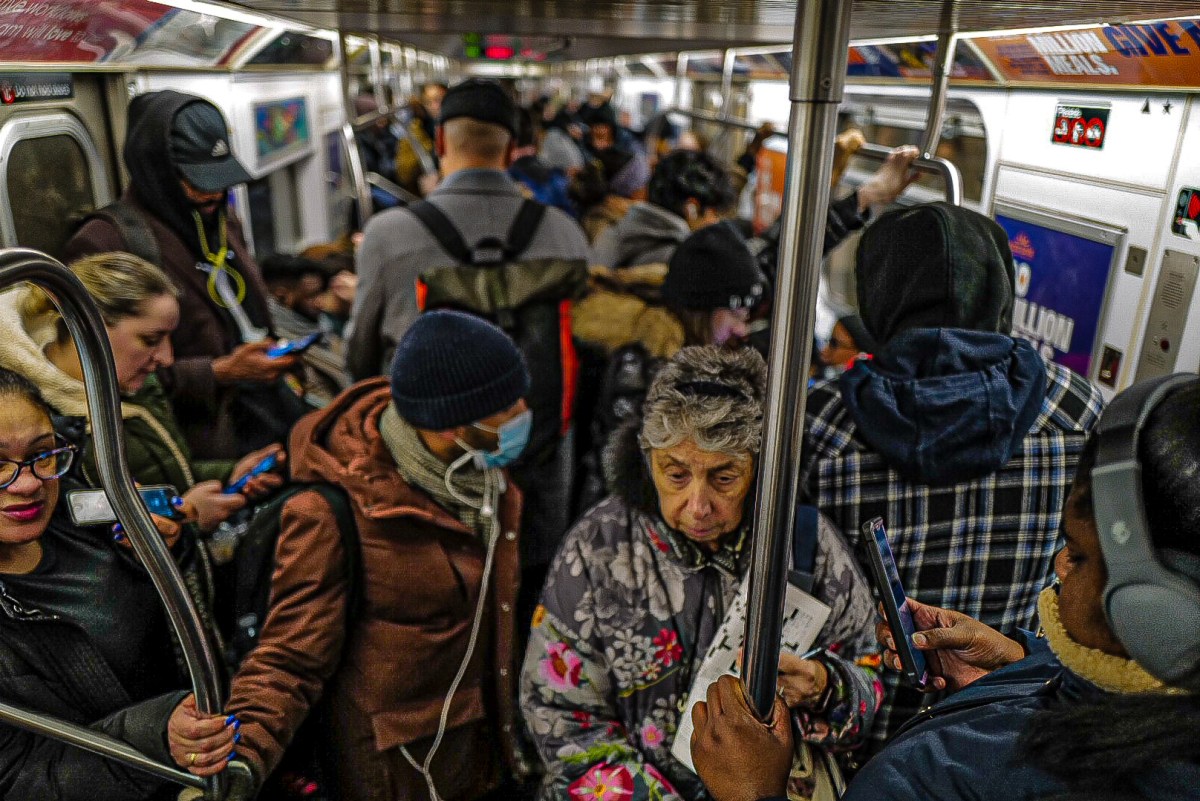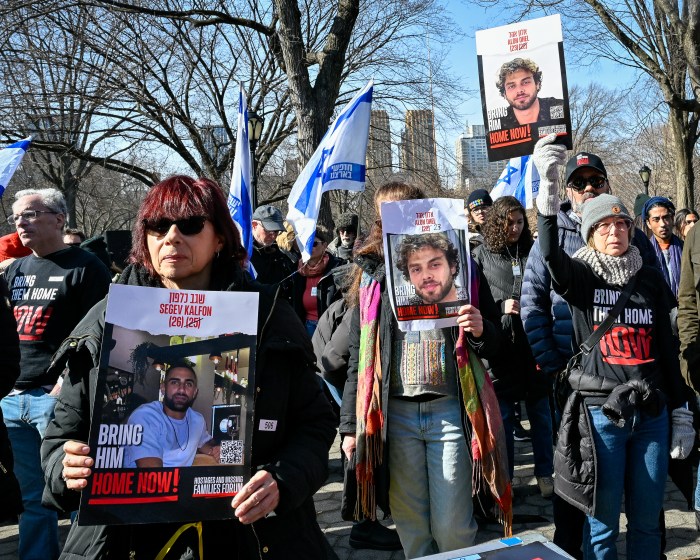A diverse gathering of high school students, and parents on Sunday, Jan. 14 filled the Weeksville Heritage Center and called to action the shared dreams and ideas of Dr. Martin Luther King Jr. through a variety of programs to reflect and commemorate the indelible work of the great civil rights leader, who would have celebrated his 95th birthday on this day.
The historic site on Buffalo and St. Marks avenues in Crown Heights, dedicated to the preservation of Weeksville, one of America’s first free Black communities during the 19th century, was a noon to 2:00 p.m., flurry of activity, thanks to partnerships with the Legacy Network, Beginning with Children, the NAACP Youth Council, Power of Two, the Brooklyn Public Library, Macon Brance, and Intelligent Mischief, that engaged youth with interactive games, and critical thinking processes they learned over the past year.
“All of these activities are the students putting into action what they learned, and most importantly what they care about. They are given the vocabulary, and the tools to make change in their own way. Action and justice are the core of today’s program,” said Deputy Director of The Legacy Network Sasha Miller.
“This exposition is one of many year-round programs, that challenge Dr. Martin Luther King’s idea of action. This is sharing and building community, said Miller.
Chief of Programs, Jennella Young, explained that the idea was to bring young people from colleges, and high schools and have them explore issues of justice, and equality, because she said, the world is so complicated it’s not easy to think about nothing that matter.
“We give them the vocabulary and the tools to understand the meaning of ethnocentrism,” she said of the Latino, Asian, Black, Middle Eastern, Mexican, and Caribbean grouping of students.
She added that educating the new generation about their history, and how to connect to their stories, is important because of the rich diversity that makes up the community.
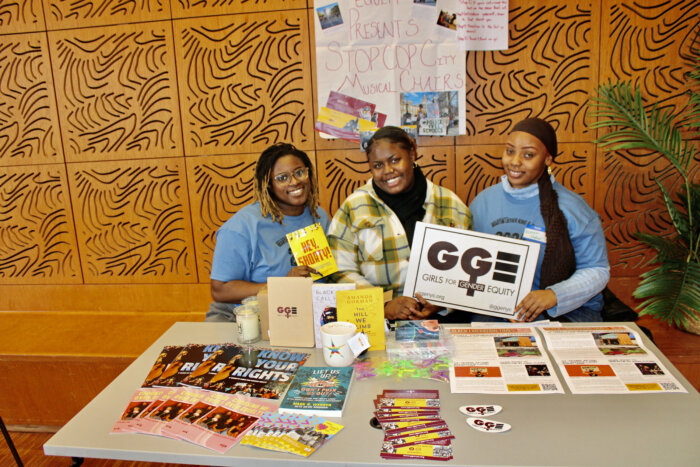
Damala Denny, manager of Youth & Alum Organizing, Girls for Gender Equity (GGE), who is of Guyanese parentage, is passionate about community, and service. “Today we’re doing an activity “called stop cop city”. The stop cop city campaign was started in Atlanta to fight for the building of a training facility for police officers that was planned for the Weelaunee forest.
“Today we joined the campaign to promote the idea of community safety and Dr. Martin Luther King was really about community-based solutions to problems. We have alternatives to policing, looking to the people that we live around, that we work with, and the people in our families to keep us safe.
Denny who has let the students for the past five years, started a youth fellowship program, and is seeking more funding to employ more college-bound students so that they can have work experience.
“We are working to create a better world where black youth specifically black trans girls and gender expansive youth of color are the experts of their own future.
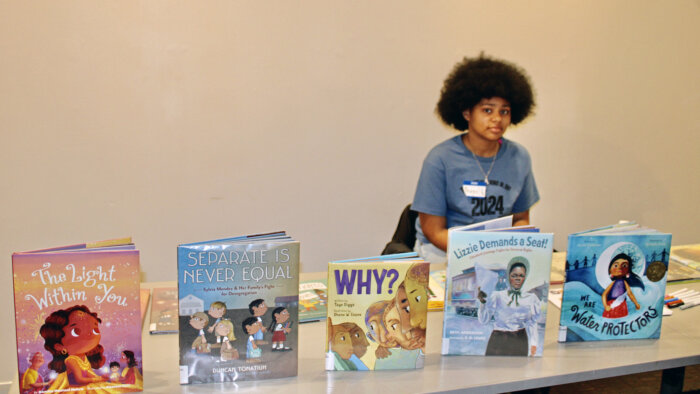
Khianna Deseide, youth coordinator, (GCE), a Jamaican-born healthcare administration student of SUNY Brockport New York, said, “Dr. Martin Luther King taught me that I just need to be a Black girl and work towards something and accomplish a goal.
“I joined this organization five years ago when I was a freshman in high school. I wanted to make something of myself. I also come from a Christian background so it kind of relates to me that sense of having those godly principles that I stick by. Being here in the community helps me to reconnect with my roots,” she noted.
Heaven Peoples, a psychology and Black studies student at City College of New York, another GGE youth coordinator, said that Dr. MLK represents liberation for women everywhere. I represent black women.
“I feel Martin Luther King was a great person, he represented rights movements. I’m here to spread information about the movements that we’ve been a part of for the liberation of black people, and women everywhere, said Peoples.”
The organization’s mission is to be a leading authority and resource for the scholarship, exploration, and dissemination of the history of Weeksville, and other 19th-and early-20th century free Black communities, as well as the modern-day artistic, intellectual, and social justice imperatives they exemplify and inspire.
Its work illuminates a pivotal aspect of Black history, as it empowers visitors with tools, training, and education. The center celebrates Black culture, community, and creativity to spark dialogue and collaborations between residents, artists, academics, and activists that advance the community towards a more just and equitable world, according to the website.
To learn more, visit https://weeksvillesociety.org/about-us/.


